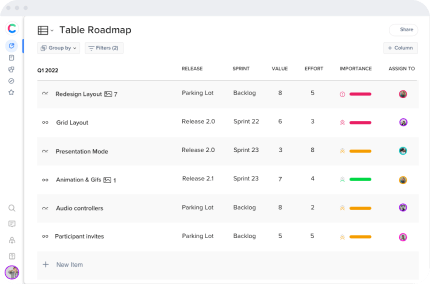What are soft skills?
Soft skills represent a range of personal abilities and attributes that shape how work colleagues fit in their respective roles. They include traits that affect how workers work independently and with others. It is hard to ignore the power of soft skills, as they are essential for every job description.
Soft Skills at Work
Product managers are most effective when they possess strong soft skills. They enable them to make their work effective by prudently assigning tasks to their respective teams. Soft skills exist in five major categories, namely;
● Adaptability – being able to acquire new skills in response to transitions. E.g., flexibility and consistency.
● Work Ethic – Individual skills that ultimately contribute to maximum productivity. E.g., teamwork, organization, and time management.
● Problem-solving – The art of identifying a problem, its cause, and implementing amicable solutions. E.g., analysis, creativity, research, and decision making.
● Communication – traits that enable workers to converse and cooperate effectively and actively on activities. E.g., active listening, persuasion, oral communication, and conflict resolution.
● Creativity – developing innovative solutions for arising problems and transition implementation. E.g., Imagination, curiosity, and inventiveness.
These soft skills help employees interact diligently and lead to effective product management without being hampered by interpersonal challenges.
Importance of Soft Skills
Soft skills are crucial for coherent product management. Lacking these essential abilities makes it arduous to lead and set examples in the workplace. Here’s why these skills are a must-have.
Encourage Teamwork
When hiring, employers use soft skills to measure how candidates can fit into teams. No matter how strong their technical skills are, employees need to be team players to apply them effectively. Soft skills such as collaboration and flexibility appeal to a hiring manager’s goal of finding a great team member.
Highly Transferable
Soft skills are in demand because they can be applied in numerous situations in various roles. These skills are necessary for every product manager in every industry. Teams members need to know that they have a leader who can listen, develop new ideas, and effectively communicate decisions. Every team player must also possess skills for product management to run smoothly.
Career Progression
Soft skills set candidates apart from their colleagues. Hiring managers agree that ‘an employee with stronger soft skills has a better chance of being promoted to a leadership position than an experienced employee with weaker soft skills.’ Soft skills not only land people jobs. They also progress in careers since product management requires the ability to learn, communicate and work as a team.
Develop Leadership
Product managers with soft skills rarely lose focus at work, can analyze what their teams need to succeed, and can invent and implement strategies to improve productivity. These are desirable skills for leaders who want the best for their teams and care about their colleagues’ well-being.
Soft Skills vs. Hard Skills
Soft skills are personal traits that affect how colleagues relate, while hard skills are technical know-how for specific fields. Also, hard skills are teachable through formal education and training programs. In contrast, soft skills are inherent and more people-focused. A suitable example of a hard skill would be a computer programmer’s ability to develop codes for applications. Soft skills such as communication, teamwork, and decision-making make it easier to form healthy work relationships and lead teams.


